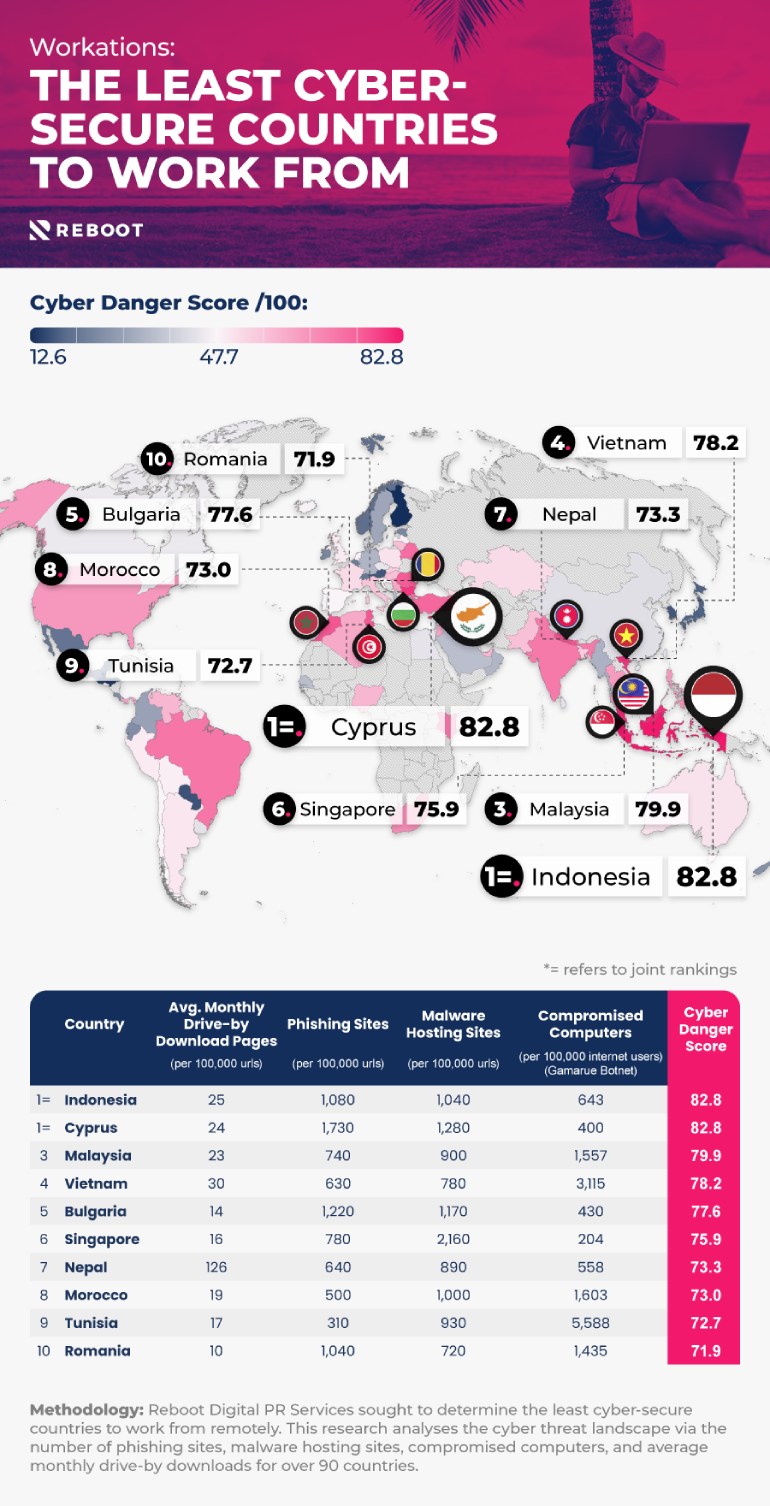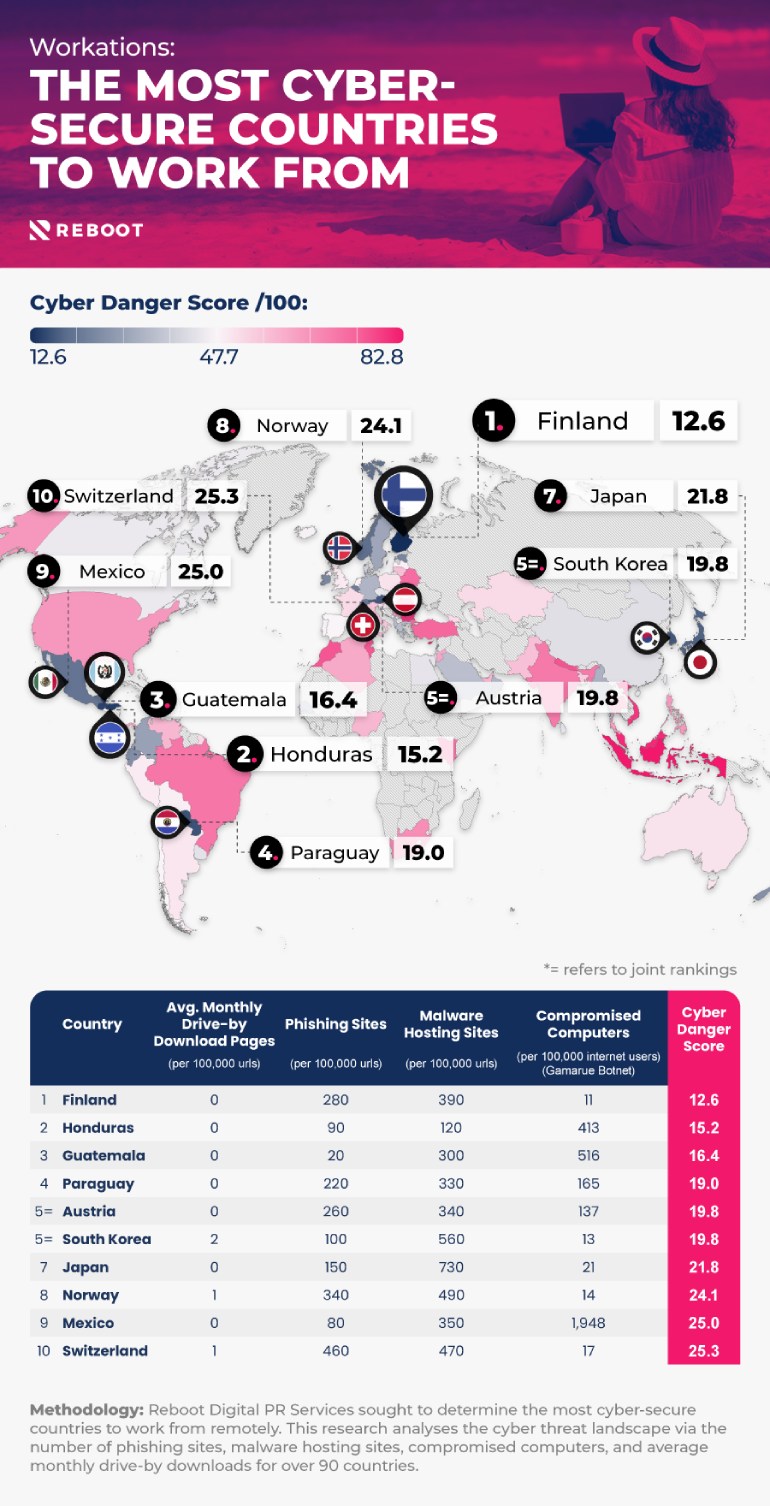 According to the latest study by Reboot Digital PR Services, which reveals the least cyber-secure countries to work from, Singapore is surprisingly amongst the least-secure Asian countries to work from remotely. Interested in the safety of digital nomads, experts at Reboot Digital PR Services analyzed cybersecurity statistics, including drive-by downloads, phishing sites, malware hosting sites, and compromised computers to create a cyber danger index score.
According to the latest study by Reboot Digital PR Services, which reveals the least cyber-secure countries to work from, Singapore is surprisingly amongst the least-secure Asian countries to work from remotely. Interested in the safety of digital nomads, experts at Reboot Digital PR Services analyzed cybersecurity statistics, including drive-by downloads, phishing sites, malware hosting sites, and compromised computers to create a cyber danger index score.
Python data mining tools were used to extract cybersecurity statistics from over 90 Microsoft Security Intelligence reports (2017) resulting in a comprehensive dataset containing the number of phishing sites, malware hosting sites, compromised computers and average monthly drive-by download pages for over 90 countries.
Each statistic collected below was presented on a per 100,000 URLs basis, except for compromised computers presented per 100,000 internet users.
An internal dataset of over 3 million restaurants and other food outlets worldwide was used to find the number of outlets providing access to free Wi-Fi per 1,000,000 inhabitants with population data acquired from the world bank. However, food outlet data was not included in the overall cyber danger rankings.
A final normalized ranking metric considering the cyber safety factors listed below was created and sorted in descending order to identify the most dangerous countries for a workcation.
In a nutshell, the key findings are:
- Indonesia and Cyprus share the crown for the least cyber-secure country in the world, with a cyber danger score of 82.8 out of 100 — topping the rankings in Asia and globally. Surprisingly, Indonesia has already established itself as a favorite hotspot for remote workers, enticing travelers with its thriving capital of Jakarta, and popular tourist destinations in Bali, while Cyprus, that hosts over 3,000 phishing and malware sites combined, has only recently started to welcome remote workers to their shores.
- Singapore hosts over 2,000 malware sites and there are on average 16 drive-by downloads per month which lands Singapore in fifth with a cyber danger score of 75.9 out of 100.
- South Asian country, Nepal follows with a score of 73.3 out of 100 and the highest drive-by downloads average of all countries analyzed, at 126 every month.
- The Philippines (62.7) and Thailand (61.8) place ninth and tenth respectively presenting a cyber danger score of over 60 out of 100.
- At the opposite end, South Korea is the most cyber-secure location in Asia with a cyber danger score of just 19.8 out of 100. Followed by Japan (21.8) and Lebanon (29.3).

By MediaBUZZ



















